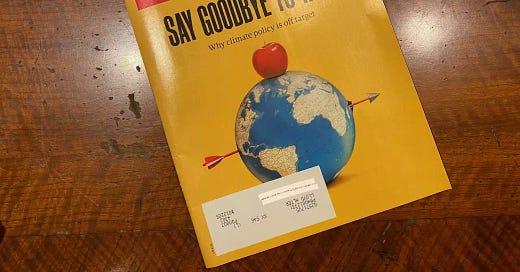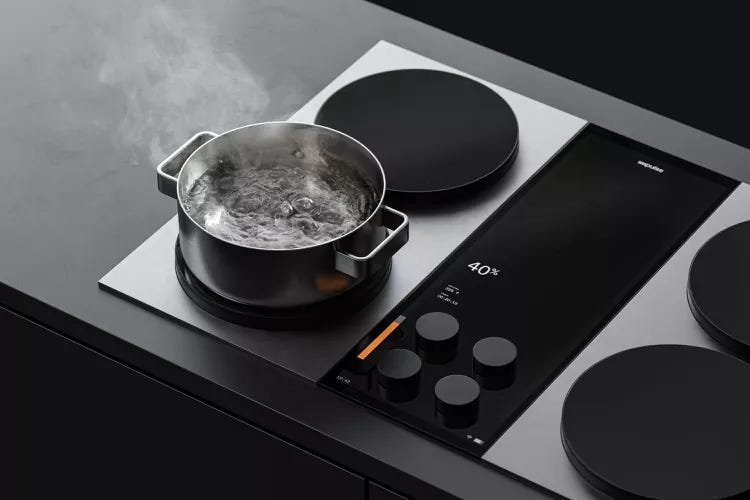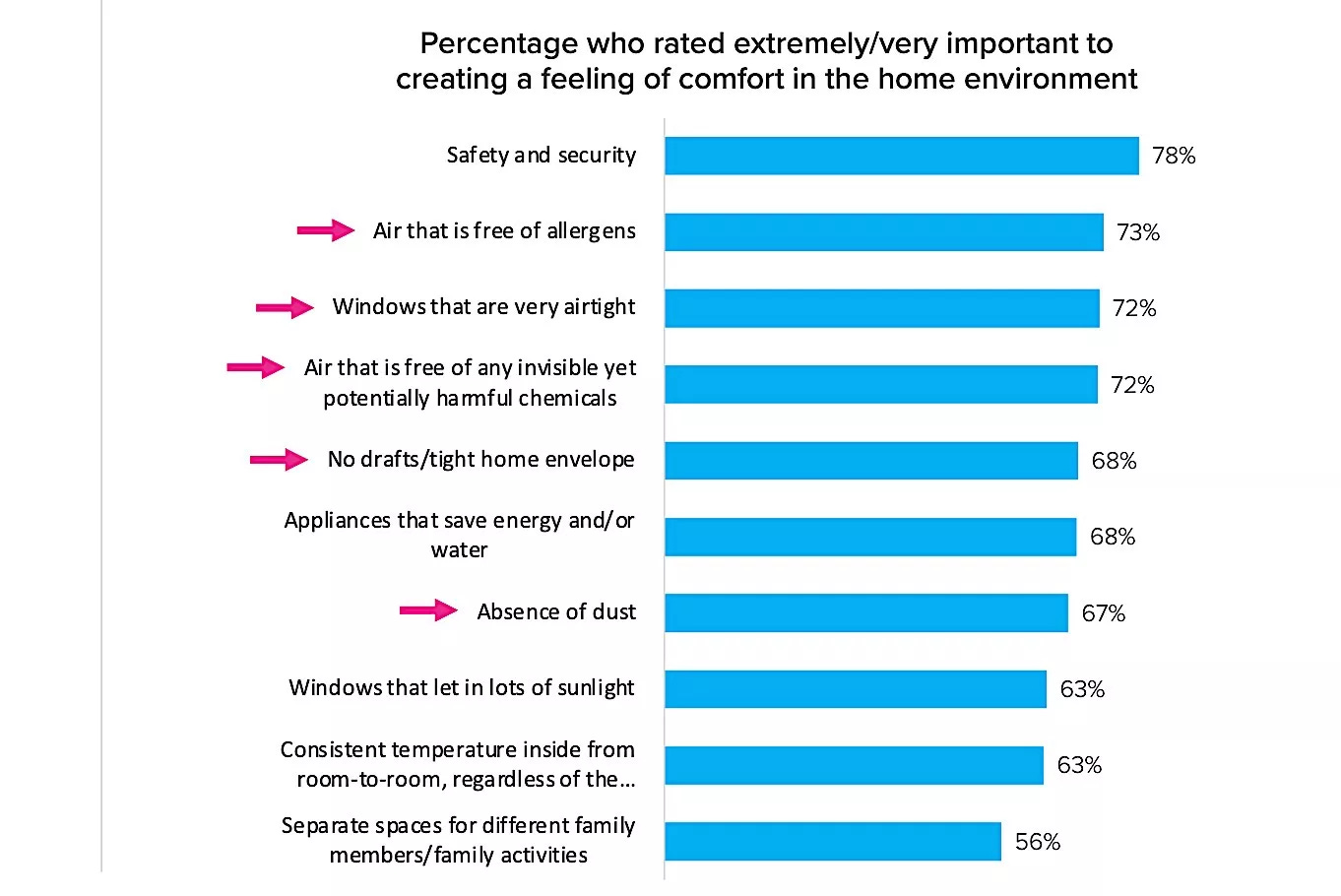My favourite stories of the week: On keeping 1.5 alive
an interesting survey and an induction range with a battery.
The 1.5-Degree Climate Goal Is As Essential As Ever
My Economist told me to say goodbye, but I’m not ready. We have the IPCC and UNEP and the Hot or Cool institute or, for that matter, my own book, Living the 1.5 degree Lifestyle, that all have described exactly what we have to do: agree to stop burning fossil fuels. But nobody wants to do this; they would rather drive their pickup truck to the In-N-Out or Harveys. “the hard truth is that we have to make hard choices right now instead of just letting 1.5 degrees sail by because it is too expensive or inconvenient. We don't have 27 years to get to net-zero or nine years to blow the carbon budget—the time to act is now.” Nobody wants to give up anything.
After seeing the sad results from COP27, I will probably have to accept that the 1.5 degree target is well and truly gone because it was clear there that nobody was going to give up their fossil fuels. I always thought that Saudia Arabia and Russia would do anything they could to keep selling, but I also thought that we might stop buying. I guess not. More: The 1.5-Degree Climate Goal Is As Essential As Ever
Impulse's Electric Cooktop Gets a Boost From Batteries
Here is an induction cooktop with a big battery underneath that will let it run on a standard 110 volt outlet because rewiring is expensive. But I bought an induction range just 3 weeks ago, and got a new outlet installed for under a thousand bucks, which is probably the cost of the battery. And why would they put knobs and raised elements on it when the greatest thing about induction cooktops is that they are a clean sheet of glass that you can wipe in a second? But a buddy who sells low-voltage wiring systems noted on Linkedin that “One of the biggest complaints I hear is "60w isn't enough for appliances". If you do the math, they are only used a few minutes or hours of runtime per day so the home battery does solve the average demand.” He has a point. More: Impulse's Electric Cooktop Gets a Boost From Batteries
What Is an Ideal Home? Survey Shows Priorities Are Changing
I have always admired the work of Suzanne Shelton and her surveys about sustainability. In her latest she finds that what people want in their home has changes post-pandemic. They say they now want safety and security first, but define safety as “clean safe air,” so they are almost double-counting with the next few categories. "This creates a real opportunity for builders of high-performance homes and the makers of products that go in them. Reframe your thinking from 'safety = security systems' to 'safety = security systems AND healthy air AND tight envelopes AND climate resilience.'" Or as I called it, Passivhaus with a good lock. More: What Is an Ideal Home? Survey Shows Priorities Are Changing
Interesting reading:
I don’t write much about aging boomers anymore as Treehugger wants me to concentrate on more traditional areas of sustainability, but I do want to make the point that the boomers are going to be around for a long time yet, and could well be under water. In the New York Times: Do You Really Want to Rebuild at 80?’ Rethinking Where to Retire.
I wrote earlier about the demographics of boomers, who will be among the hardest hit by climate change.
Carbon Capture and Storage (CCS) is the great hope of the fossil fuel world, and a major part of the plan in Canada to keep Alberta fat and happy and pumping petroleum. Alas, as Ketan Joshi notes in a long, technical and fascinating article, it causes the problem it fails to solve.
One of the most interesting Substacks I follow is Brian Potter’s Construction Physics; He is so interesting and thorough. Most recently, he covers the building material I love to hate: Drywall.





